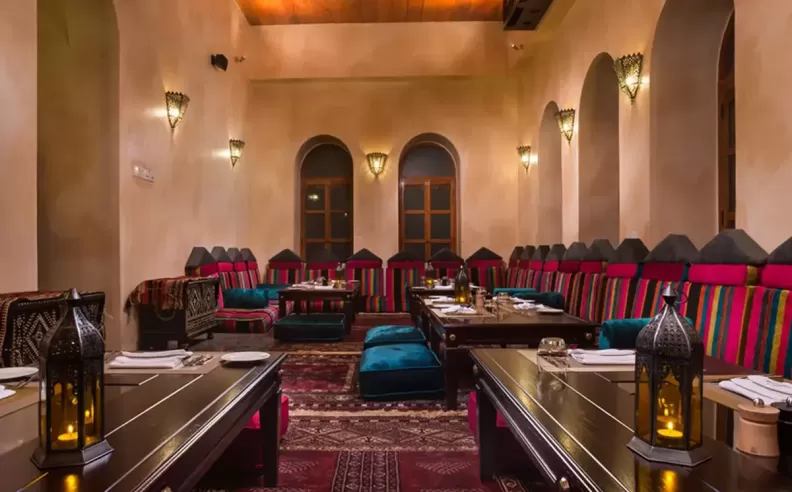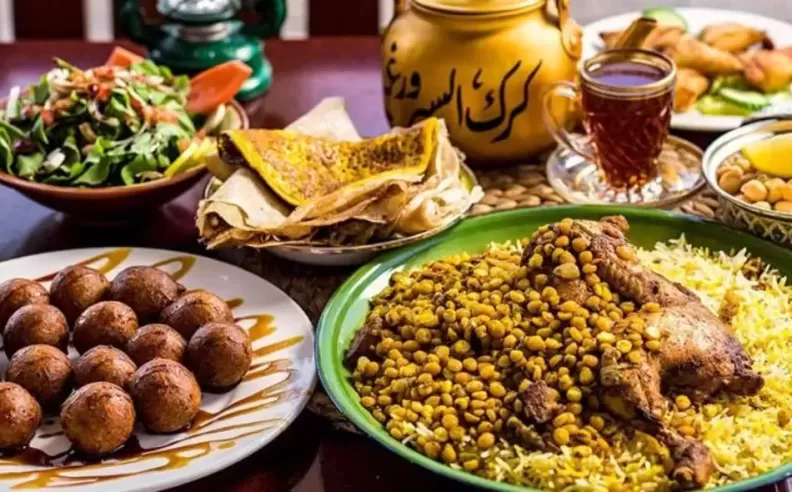
Emirati cuisine is more than just traditional dishes served on a plate it’s a living reflection of history, hospitality, and heritage passed down through generations. With ingredients rooted in the sea, desert, and date palm, the cuisine brings together simple elements in dishes rich with meaning and warmth. Whether a traveler exploring Abu Dhabi and Dubai or a Gulf local reconnecting with roots, every bite tells a story one of generosity, family, and culture.
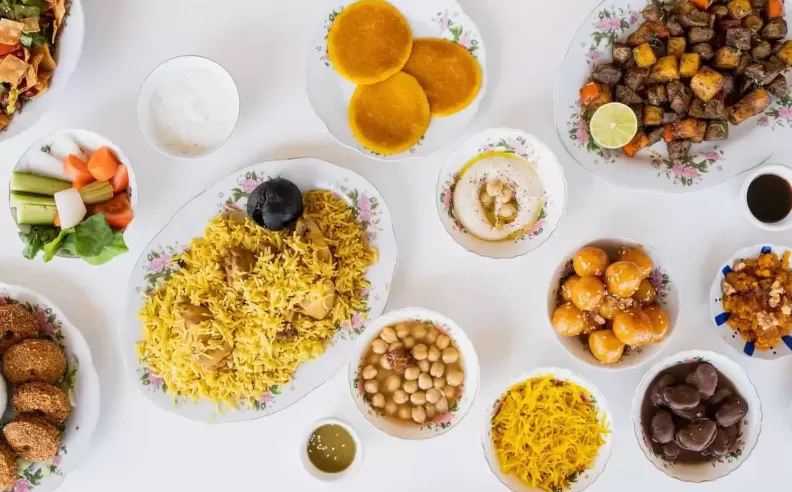
Emirati food stays true to its Bedouin origins while embracing modern tastes. Dishes like Machboos and Harees remain staples, blending rice, meat, and spices with depth and simplicity. Yet, they are often served with a touch of refinement today presented in contemporary styles without losing their soul. This harmony between past and present reflects a cuisine that adapts but never forgets its identity.
Emirati tables often revolve around Machboos, the national dish known for its fragrant spiced rice with lamb, fish, or chicken. Tharid, a hearty stew soaked in crispy bread, offers comfort in every bite. Harees, a porridge-like blend of wheat and meat, symbolizes warmth especially during Ramadan. These dishes aren’t just food they’re a shared experience, deeply woven into family and celebration.
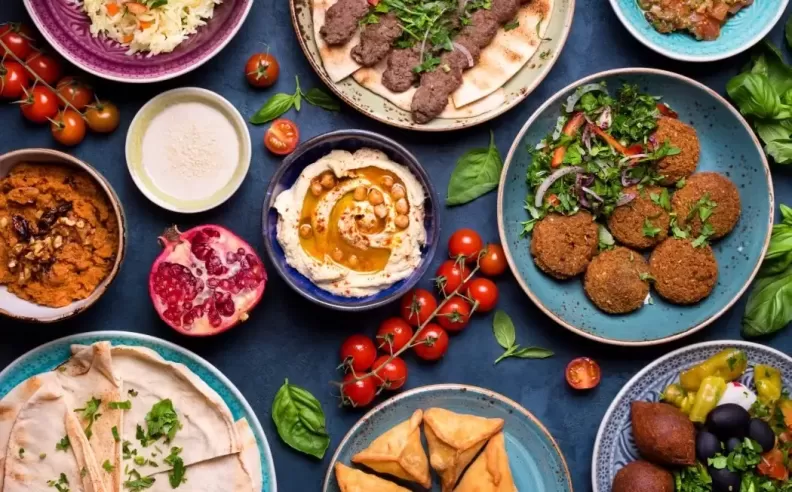
Breakfast in the Emirates goes beyond coffee. Balaleet offers a sweet-savory combo of vermicelli and eggs, while Chabab pancakes with saffron and cardamom bring rich aromas to the table. Khameer, a soft date-laced bread, becomes even better with honey or cheese. These dishes make mornings both filling and flavorful perfect for men on the move.
The sea plays a central role in the Emirati kitchen. Samak Mashwi grilled fish marinated with local spices stands out as a staple. Jasheed, made with shredded shark meat, highlights the region’s maritime legacy. These seafood dishes tell the story of the UAE’s coastal life, where fishing was not just survival, but a cultural rhythm.
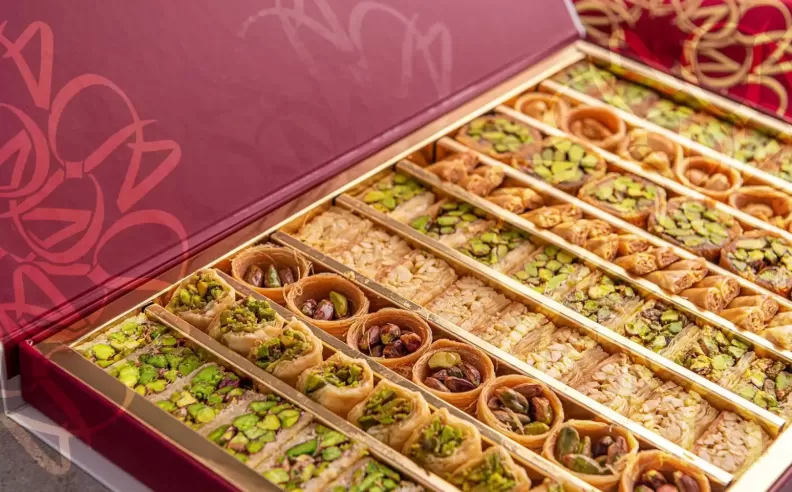
Emirati sweets are simple yet satisfying. Luqaimat, golden dumplings drenched in date syrup, are essential during Ramadan. Asida, a warm mix of flour, sugar, and ghee, comforts on cooler days. Even Knafeh gets a local twist with pistachio and date-inspired flavors. These desserts aren’t just indulgent they’re part of the tradition of offering guests something truly sweet.
Gahwa, or Arabic coffee, infused with cardamom and saffron, is the drink of choice in any Emirati gathering. Paired with dates, it represents generosity and connection. Karak, a milk tea spiced with cinnamon and cardamom, brings a richer, bolder flavor perfect for the early mornings of working men. These drinks offer not just taste, but a moment of pause and tradition.
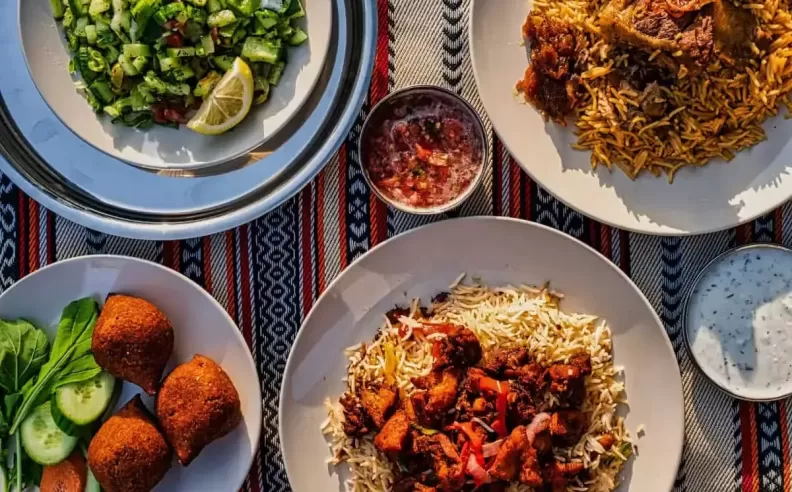
Some meals are reserved for big moments. Ouzi, a luxurious dish of spiced rice topped with whole roasted lamb, anchors weddings and festivities. Madrooba, made with fish and flour, is often served during religious events. These dishes go beyond nourishment they represent honor, heritage, and celebration.
In Dubai and Abu Dhabi, several venues serve more than food they serve memories. Al Fanar recreates the UAE of the 1960s with traditional fare and nostalgic settings. Logma reinvents classic dishes for modern palates in a vibrant space. For a deeper cultural dive, the Sheikh Mohammed Centre for Cultural Understanding offers shared meals with storytelling, perfect for learning while tasting.
Emirati cuisine is a cultural journey, not just a menu. From sweet dumplings to roasted lamb, every dish carries warmth, pride, and story. For Gulf men seeking authenticity, connection, and flavor this cuisine delivers with every bite.

Started my career in Automotive Journalism in 2015. Even though I'm a pharmacist, hanging around cars all the time has created a passion for the automotive industry since day 1.
